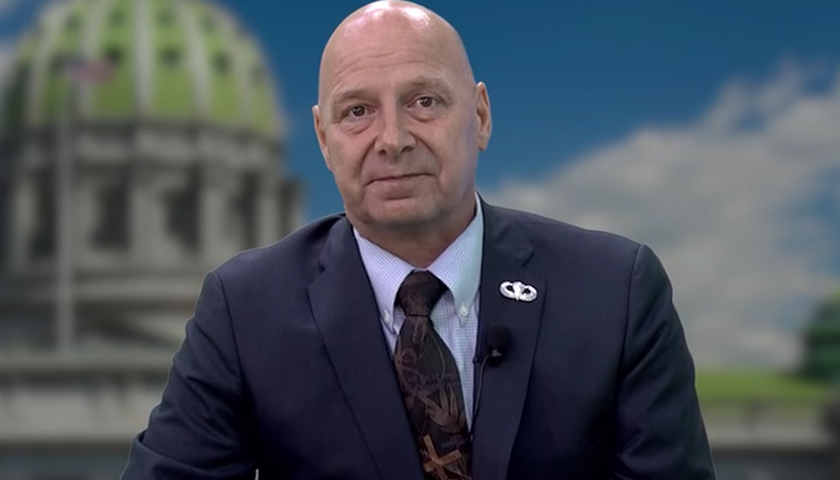A quick summary of the history, so far, of pro-choice arguments. Because if it seems like they keep shifting, well, there's a reason.
If you're old enough, you may remember a time when the argument in favor of school choice was that students needed to be able to escape their failing public school.
There was a period way back when in which the argument was for vouchers, but vouchers tested poorly with the electorate, so choicers threw their weight behind charter schools, with a continued and frequent emphasis on the notion that charter schools were just another type of public school, because generally speaking, people liked and trusted public schools. Charters will just add to a robust public educational ecosystem, they said.
The "public schools are failing" trope (first given some heft in A Nation at Risk, a report commissioned to make exactly that point) needed some back-up, and at just that opportune moment, we got the rise of the Big Standardized Test, a high stakes system that would provide solid data proving that public schools were Failing Our Children.
Then school choice was adopted by folks on the Left and the Right (and by people from the Right pretending to be on the Left) so we had a tag team argument. Students should not have their educational quality determined by their zip codes. The pro-choice argument was two-pronged:
1) Public schools are failing academically (look at these test scores) but unleashing the power of the free market will competitionize them into excellence.
2) Public schools are failing poor and minority students, and in the pursuit of equity, those students should be given a school choicey path out.
This two prong period lasted roughly most of the Obama administration, because the movement benefited from the neo-liberal Democrat support of choice. But it was at times a tense partnership. Free marketeers chafed at the social justice wing's ideas about regulating choice schools to suck less, and the social justice wing tried hard not to notice that free marketeers didn't really care that much about how choice affected their children.
And then Obama was out and Hillary tanked and the free marketeers didn't need the social justice wing any more, and detente was over.
The choice argument was also suffering from another problem. Charter schools weren't any better than public schools, and voucher systems were maybe even a little worse. Some new arguments were tried out, like "choice gives strivers a chance to get away from those other kids." Some free marketeers and libertarians started saying more loudly that it didn't really matter if choice improved outcomes or not--it was a virtue in its own right.
Trump knew nothing about education policy except that backing choice got him support from the Catholic Church. And Betsy DeVos was patiently waiting for the rest of the movement to catch up to where she has been for years.
Her moment was almost coming, but first we had a few years of just replaying the hits-- escape failing schools, improve outcomes, let's push vouchers under some other name, etc.
Then the pandemic hit, leaving local schools to wrestle with the question "How do we navigate this unprecedented crisis" while on the national level, everyone was more focused on "How do we leverage this unprecedented crisis for maximum political benefit."
To their credit, many choicers initially resisted the call to blame public schools for schools being closed, but that moment passed, someone decided it would be good strategy to blame school closures on the unions, and then people lost their damned minds over masking. When Christopher Rufo decided to elevate critical race theory to the level of a McCarthy-style Red Scare, a whole network of anti-maskers was already in place to spread the word (Moms For Liberty is a fine example of a group that started out anti-mask and quickly pivoted).
The many waves of complaints and controversies may seem large and complex, but they really aren't. They all connect through one simple idea, the new choicer pitch, summed up in this quote from Rufo speaking at Hillsdale College:
To get universal school choice, you really need to operate from a place of universal school distrust.
The current choice pitch is that parents need the power of choice because public schools can't be trusted. Jay Greene, who I always thought of as intellectually honest, has moved to the heritage foundation and now publishes pieces like "
Who will raise children? Their parents or the bureaucratic experts?" He signaled this new approach explicitly with February's
"Time for the school choice movement to embrace the culture war" aka "We can use this current noise to further our cause." My state of Pennsylvania is facing a viable candidate for governor whose idea is to end property taxes, replace them with nothing, and give every parent a voucher good for half of the current per-pupil spending amount in the state.
Do not be distracted by the arguments about LGBTQ students and trans athletes and teacher gag laws; these all matter, and certainly many hard right folks will be happy if they win these fights, but for the pro choice crowd, the point is that public schools can't be trusted and we need to scrap the whole system and replace it with vouchers (or, as DeVos called it, "educational freedom"). If the right drags victory out of any of these many erupting pockets of chaos, that's gravy, but for many choicers, the chaos is the whole point, because it adds to the claims of a failing public system.
The end game, for those on the far right DeVos-style wing is as it has always been--get the government out of education. Take back the schools for religious education. Slash the tax-based funding because that's just the government stealing our hard-earned dollars to pay for more services for Those Peoples' Children. And while all that's happening, if we could break the back of the teachers unions, which just prop up the democratic Party, and, hey--also let some entrepreneurs make a buck selling education flavored products.
At every stage of the choicer evolution, you will find people who sincerely believe their talking point du jour. But at this point, it's hard not to notice that some choicers will adopt whatever argument will get them closer to the dismantling and privatization of public education.
Like many other movements, the school choice movement has room for both true believers and grifters, but in both cases, the school choice debates are marked by a refusal to talk about what we're really talking about--changing education from a universally provided public good into a privately owned and operated commodity delivered however and to whomever the market deems worthy.
The irony of the newest talking point (Public schools can't be trusted and we must burn the system down and replace it with vouchers for parents) is that it's the closest we've come to having that honest conversation. Granted, it's dishonest in its indictment of public ed, and it's dishonest in that it fails to admit that we're talking about stripping all guarantees and protections for parents and students and the nation that depends on an educated public, but hey--at least we're finally openly discussing the destruction of public education as we know it. Stick around to see what comes next.


















